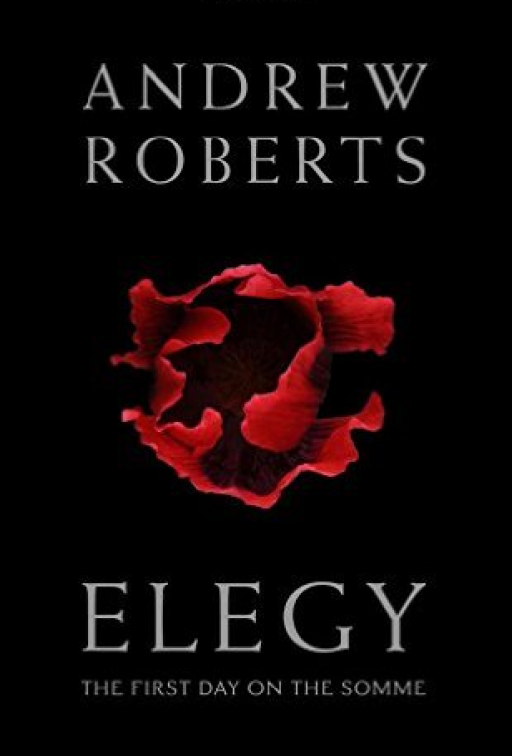Publisher’s Description:
‘On 1 July 1916, after a five-day bombardment, 11 British and 5 French divisions launched their long-awaited ‘Big Push’ on German positions on high ground above the Rivers Ancre and Somme on the Western Front. Some ground was gained, but at a terrible cost. In killing-grounds whose names are indelibly imprinted on 20th-century memory, German machine-guns – manned by troops who had sat out the storm of shellfire in deep dugouts – inflicted terrible losses on the British infantry.
The British Fourth Army lost 57,470 casualties, the French Sixth Army suffered 1,590 casualties and the German 2nd Army 10,000. And this was but the prelude to 141 days of slaughter that would witness the deaths of between 750,000 and 1 million troops.
Andrew Roberts evokes the pity and the horror of the blackest day in the history of the British army – a summer’s day-turned-hell-on-earth by modern military technology – in the words of casualties, survivors, and the bereaved.’
Centenary News Review
Review by: Eleanor Baggley, Centenary News Books Editor
I have been reading and writing about the First World War for several years now and every so often a book will come along that either makes me revaluate what I know, or makes everything slot into place. Elegy is one of the latter. Prior to reading this fascinating study, the Somme had meant little more to me than death, destruction and incompetence. Roberts doesn’t seek to counter or support those assumptions, rather he lays out the facts of this deadly battle and tells the story of 1st July 1916 in the voices of the men who were there.
Roberts starts at the beginning. He explores the strategy for the offensive, the tactics to be utilised, and the preparations that were made in the run up to zero hour. Then he focuses in on zero hour itself, exploring the thoughts and feelings of the men as they wait for the signal to go over the top. He shares stories of bravery and of futility, like that of Captain Wilfred Nevill of the 8th Royal East Surrey Regiment who kicked a football across no man’s land to encourage his men onwards, only to be killed before he’d covered 20 yards.
A particularly emotive and illuminating addition in the book is Roberts’s exploration of epitaphs, which reflects the book’s dual purpose – it is both a historical study and an elegy. This is woven into the text with subtlety and avoids tipping what is a very accurate and fascinating book into the realms of sentimentality. Part of this book’s power lies in reminding the reader that these men were real men who lived and breathed, and this inclusion of the epitaphs makes that difficult to forget.
This is a very objective book and Roberts does not get bogged down in blame as many books about the Somme do. He objectively explores the role of Haig and the other generals, using appropriate evidence to allow the reader to make their own judgments should they wish.
In Elegy, Roberts evokes the horror of 1st July 1916 by deftly balancing the facts with personal accounts and experiences. He brings the focus on the people who fought and died, who are not just numbers relegated to the history books, but men who had hopes, dreams and plans.
What do you think about this book? Please add a comment below.
